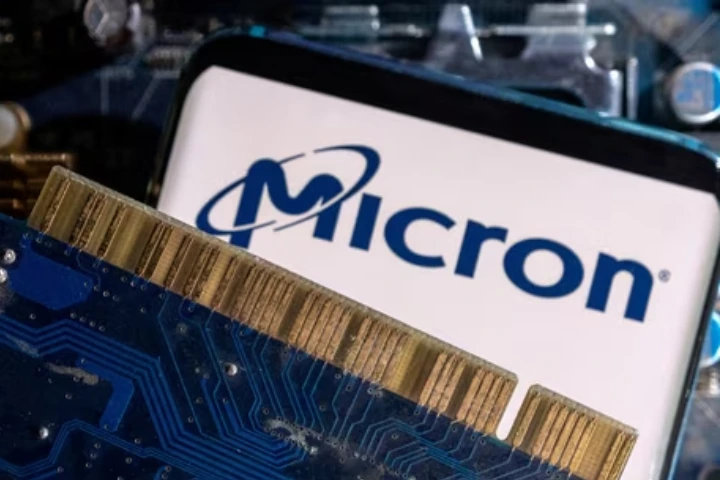The US government has announced a plan to award Micron Technology up to $6.14 billion in grants and $7.5 billion in loans to support the US chipmaker’s plan to build new factories, as it strives to bolster domestic semiconductor production.
Micron last year started construction of its India semiconductor plant in Sanand, Gujarat. The first ‘Make in India’ chip is all set to arrive in December from the Rs 22,500 crore Micron semiconductor plant.
The White House said that the Commerce Department has reached a non-binding preliminary agreement with the company to provide the proposed funding under the CHIPS and Science Act to back the construction of two leading-edge dynamic random-access memory (DRAM) fabrication plants in Clay, New York, and the development of a high-volume manufacturing fab in Boise, Idaho.
Micron plans to invest up to $125 billion across both states over the next two decades to build a “leading-edge memory manufacturing ecosystem,” it added, noting the company’s total investment will create over 70,000 jobs, including 20,000 direct construction and manufacturing jobs.
“With this proposed investment, we are working to deliver on one of the core objectives of President Biden’s CHIPS program — onshoring the development and production of the most advanced memory semiconductor technology, which is crucial for safeguarding our leadership on artificial intelligence and protecting our economic and national security,” Secretary of Commerce Gina Raimondo said.
The announcement came after the department unveiled a plan last Monday to award Samsung Electronics up to $6.4 billion in grants to support the South Korean tech giant’s chip-making investment in central Texas, reports Yonhap news agency.
In addition to Micron and Samsung, Intel, TSMC Arizona Corporation, GlobalFoundries, the American subsidiary of BAE Systems Plc, and Microchip Technology Inc. have also been selected as subsidy beneficiaries.
The CHIPS Act sets aside $39 billion in incentives to encourage chipmakers to build, expand or modernise semiconductor facilities in the US.
The Commerce Department plans to invest about $28 billion of the total in leading-edge chipmakers, like Samsung.
The Biden administration pushes to deliver on its plan to produce about 20 per cent of the world’s leading-edge logic chips by 2030.



















